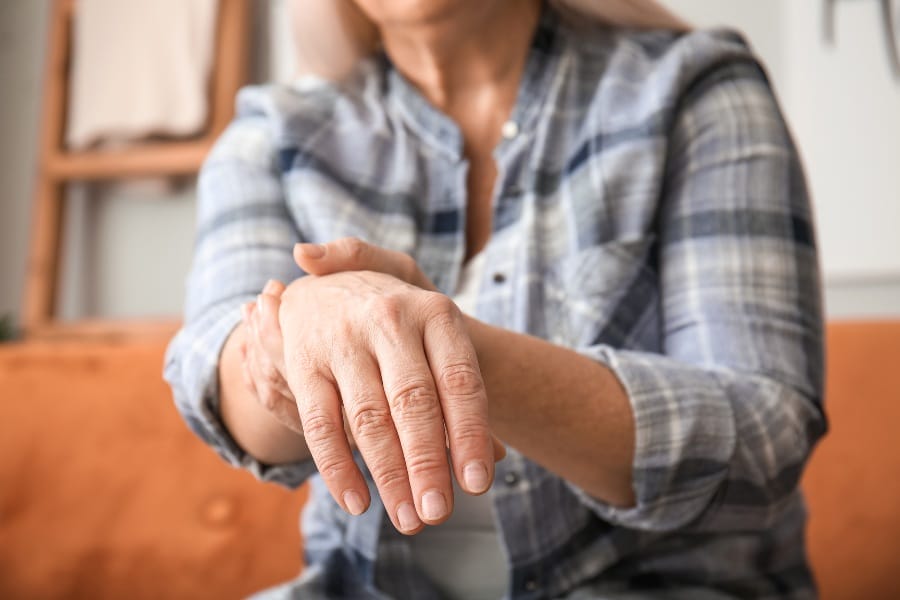Is Parkinson’s Disease Fatal?
Parkinson’s Disease (PD) is a progressive neurodegenerative disorder that affects millions of people worldwide.
One of the most common questions individuals with PD and their loved ones ask is, “Is Parkinson’s Disease fatal?”
Parkinson’s Disease itself is not fatal, but complications arising from it can be serious and sometimes lead to death.
In this article, we will explore the relationship between Parkinson’s Disease and mortality, discussing the symptoms, progression, and factors that influence the disease’s impact on quality of life and lifespan.
We will also cover treatment options, the role of caregivers, and the importance of planning for end-of-life care.
Key Takeaways
- Parkinson’s Disease itself is not fatal.
- Complications from PD can lead to serious health issues.
- Proper management and treatment can improve the quality of life.
What is Parkinson’s Disease?
Parkinson’s Disease is a chronic neurological disorder that affects movement and balance.
The disease is caused by the degeneration of neurons in the brain that produce dopamine, a neurotransmitter essential for controlling movement.
The primary risk factors for developing PD include age, with the majority of cases occurring in people over 60, and genetics, as certain gene mutations can increase the likelihood of developing the disease.
Symptoms and Progression of Parkinson’s Disease The hallmark motor symptoms of Parkinson’s Disease include:
- Tremors
- Rigidity
- Bradykinesia (slowness of movement)
- Postural instability
In addition to motor symptoms, individuals with PD may also experience non-motor symptoms, such as cognitive impairment, depression, anxiety, sleep disorders, and autonomic dysfunction.
Stages and Progression of Parkinson’s Disease
 Parkinson’s Disease progresses through stages, with symptoms worsening over time and affecting daily activities and quality of life.
Parkinson’s Disease progresses through stages, with symptoms worsening over time and affecting daily activities and quality of life.
In the early stages, PD symptoms are mild and may only affect one side of the body. During this period, there may be minimal impact on daily life.
As the disease advances, symptoms become more pronounced, affecting both sides of the body and making movement more difficult.
In the later stages, individuals may experience severe motor symptoms, including significant balance issues and difficulty walking (gait problems).
At this point, falls become more common, and there may be a marked decline in cognitive function and overall quality of life. Parkinson’s progresses at different rates for each person, influenced by age, overall health, and how well they manage their condition.
Impact of Parkinson’s Disease on Quality of Life
Parkinson’s Disease significantly impacts the quality of life for both the individual diagnosed and their loved ones.
Physical limitations and challenges can make it difficult to perform daily tasks, while emotional and psychological effects can lead to social isolation and strained relationships. Parkinson’s disease can even impact the type of food you eat.
Many people with PD may need to adjust their work schedules or retire earlier than planned due to the disease’s progression.
Is Parkinson’s Disease Fatal?
 While Parkinson’s Disease itself is not directly fatal, it can lead to life-threatening complications.
While Parkinson’s Disease itself is not directly fatal, it can lead to life-threatening complications.
Studies have shown that individuals with PD have a slightly reduced life expectancy compared to the general population.
Some of the common complications from Parkinson’s Disease that can contribute to mortality include:
- Falls and injuries
- Pneumonia
- Swallowing difficulties and aspiration
- Cognitive decline and dementia
For example, an individual with Parkinson’s Disease may have poor mobility, which would cause a fall and serious head injury that leads to death. Therefore, PD did not directly cause death, but it was a major factory.
That is why we do not technically classify Parkinson’s as a fatal disease.
Note: Parkinson’s disease can increase the risk of cardiovascular disease (CAD), including ischemic heart disease, heart failure, and arterial hypertension. In fact, many people that PD is a precursor to cardiovascular dysfunction.
Factors Influencing Parkinson’s Disease Progression and Mortality
Several factors can influence the progression of Parkinson’s Disease and its impact on mortality, including:
- Age of onset and duration of the disease
- Severity of symptoms
- Responsiveness to treatments
- Comorbidities and overall health status
Early diagnosis and intervention can help manage symptoms and potentially slow the progression of the disease.
Early Diagnosis and Intervention
Early diagnosis of Parkinson’s Disease is crucial for effective management and treatment.
When diagnosed early, individuals can work with their healthcare team to develop a comprehensive treatment plan that addresses their specific needs and goals.
Early intervention may help slow the progression of the disease and maintain a better quality of life for a longer period.
Treatment Options for Parkinson’s Disease
While there is currently no cure for Parkinson’s Disease, various treatment options can help manage symptoms and improve quality of life. These include:
- Medications: Levodopa, dopamine agonists, MAO-B inhibitors, COMT inhibitors, and anticholinergics
- Surgical interventions: Deep brain stimulation (DBS)
- Non-pharmacological therapies: Physical therapy, occupational therapy, speech therapy, and exercise
- Complementary and alternative therapies: Massage, acupuncture, and tai chi
Advanced Therapies and Their Impact on Quality of Life
In recent years, advanced therapies such as deep brain stimulation (DBS), pump-delivered therapies (Duopa and apomorphine), and focused ultrasound have shown promise in managing symptoms and improving the quality of life for individuals with advanced Parkinson’s Disease.
These therapies can help reduce motor fluctuations, diminish the severity of symptoms, and decrease the reliance on medications.
The Role of Caregivers in Supporting Individuals with Parkinson’s Disease
Caregivers and in-home nurses play a vital role in supporting individuals with Parkinson’s Disease, providing physical, emotional, and practical assistance.
However, caregiving can also be challenging, and it is essential for caregivers to have access to resources and support to maintain their own well-being.
Support groups, respite care, and counseling services can help caregivers cope with the demands of their role.
Planning for End-of-Life Care
As Parkinson’s Disease progresses, it is crucial to plan for end-of-life care.
This includes discussing advance care directives, exploring palliative care and hospice options, and ensuring that the individual’s wishes are respected.
Emotional and spiritual support should also be available for both the individual with PD and their family members during this challenging time.
Coping with Parkinson’s Disease
 Living with Parkinson’s Disease can be difficult, but there are strategies and resources available to help individuals and their families cope with the challenges.
Living with Parkinson’s Disease can be difficult, but there are strategies and resources available to help individuals and their families cope with the challenges.
Some tips for managing symptoms and maintaining independence include:
- Staying active and engaged in physical therapy and exercise programs
- Maintaining a healthy diet
- Adopting stress-reduction techniques, such as meditation or yoga
- Seeking emotional and mental health support through counseling or support groups
- Connecting with local and online Parkinson’s Disease communities for information and support
High-Quality Lives Can Still Be Lived
While Parkinson’s Disease can be a challenging and life-altering diagnosis, it is important to remember that with comprehensive care, support, and planning, individuals with PD can still lead fulfilling lives.
By understanding the relationship between Parkinson’s Disease and mortality, and by actively working with healthcare providers, family members, and support networks, those affected by PD can better navigate the journey ahead.
Remember, you are not alone in this fight, and there is always hope for a brighter future.
Could you benefit from high-end nursing care?
If you or a loved one has been diagnosed with Parkinson’s disease, NurseRegistry can help.
We offer premier nursing care around-the-clock, meaning complete 24/7 care provided by a licensed and professional RN or LVN/LPN.
Our process is completely convenient and streamlined and our team will meticulously match your loved one with a highly compatible nurse. Beyond skillset, we even consider age, gender, and personality.
Get the best care possible by clicking below and learning more about NurseRegistry today.
People Also Ask About Parkinson’s Disease
How long can someone live with Parkinson’s disease?
People with Parkinson’s can live many years after diagnosis. Life expectancy can be nearly normal with proper management, though it can vary depending on age, overall health, and how quickly symptoms progress.
What are the most common symptoms of Parkinson’s disease?
Parkinson’s disease symptoms often start with a tremor in one hand. Other common symptoms include slow movement, muscle stiffness, problems with balance, and a frozen facial expression. Non-movement disorders, like sleep disturbances and mood changes, are also frequent.
What factors can exacerbate the progression of Parkinson’s disease?
Factors like stress, lack of exercise, poor diet, and not following treatment plans can worsen Parkinson’s symptoms. Infections, illnesses, and certain medications may also speed up disease progression.
Can Parkinson’s disease be effectively treated or managed?
There is no cure for Parkinson’s, but it can be managed. Medications can control symptoms, and therapies like physical therapy can improve quality of life. Surgical options like deep brain stimulation are available for some patients.
What are the end stage indicators of Parkinson’s disease?
In the later stages, patients may experience severe disability, including difficulty swallowing, speaking, and significant mobility issues. They may also suffer from non-motor symptoms such as severe sleep problems and cognitive impairment.
Does Parkinson’s disease inevitably lead to loss of mobility?
Not everyone with Parkinson’s will lose mobility entirely, but many will face mobility challenges. With early and ongoing treatment, patients can maintain a degree of independence and manage mobility issues more effectively.
Resources and Support For more information and support, consider reaching out to the following organizations and resources:
- Parkinson’s Foundation
- Michael J. Fox Foundation for Parkinson’s Research
- American Parkinson Disease Association
The post Is Parkinson’s Disease Fatal? appeared first on NurseRegistry.
from NurseRegistry https://ift.tt/ValNFKg

My mother battled multiple sclerosis (ms) disease for about 7 years. Searching for a more natural approach to add to her current regimen, we have been using various alternative methods, and she still experienced difficulty walking despite what Western medicine practitioners predicted. Nothing seemed to work until I found this website www multivitamincare. org. They said that the doctor has power over difficulty walking disease, so I contacted them via email , and I received responses immediately. After receiving the herbal remedies, my mother used them as instructed. Within seven weeks, my mom went back to her doctor, who informed her that she was completely cured of MS. I never thought this herbal medicine would work, but based on the online testimonies about this doctor curing many diseases, I decided to contact him happily. You can also reach out to them if you have any health problem or disease via www. multivitamincare .org. ( www .multivitamincare@gmail.com )
ReplyDelete